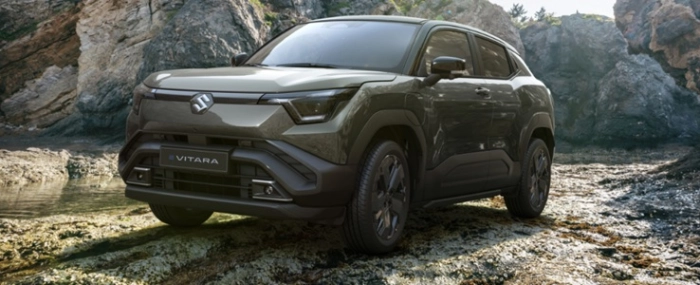
Suzuki forms EV battery partnerships with Tata Gotion, FinDreams
India is set to play a critical role in Suzuki’s battery and EV strategy, positioning the country as a global hub for electric car production and export.
Suzuki Motor Corporation has established key partnerships with Tata Gotion, TDS Lithium-ion Battery Gujarat (TDSG), FinDreams Battery and ELIIY Power to secure a reliable and sustainable supply of batteries for its growing electric vehicle (EV) business.
These collaborations will help Suzuki strengthen its supply chain, diversify battery procurement, and support its electrification strategy across various vehicle segments, according to a media release.
Tata Gotion will supply batteries for Suzuki’s electric motorcycles, while TDSG will provide lithium-ion batteries for hybrid vehicles. FinDreams Battery is designated as the supplier for batteries used in Suzuki’s battery electric vehicles (BEVs), ensuring a steady flow of essential components for the company’s EV production.
Additionally, Suzuki is partnering with ELIIY Power to set up a battery research and development center at its Kawasaki Plant to advance in-house battery production and develop domestically manufactured solutions.
“Suzuki’s approach focuses on sourcing high-performance, high-quality batteries in collaboration with these partners, with plans to further expand demand by jointly developing batteries for in-house production,” the media release said. “The company’s commitment to energy-efficient technology, lean battery use, and the optimization of regional production capabilities will support its electrification goals and improve the sustainability of its operations.”
A major emphasis is being placed on increasing localization in India, where the market for electric vehicles is expanding rapidly, media reports said.
India is set to play a critical role in Suzuki’s battery and EV strategy, positioning the country as a global hub for electric car production and export. Suzuki aims to increase its annual production capacity to four million units, with India serving as the export hub for hybrid vehicles.
Suzuki recently unveiled its first electric car, the e-Vitara, which will first be exported to Europe from India before being made available in India. It also launched the electric version of its Access scooter for the Indian market.
By 2030, Suzuki plans to introduce a portfolio of four BEVs in India’s passenger vehicle segment, with an expected annual volume of 381,000 electric cars by the decade’s end. BEVs are projected to make up 15% of Maruti Suzuki’s powertrain mix by 2030, with CNG, ICE, and hybrid vehicles making up 35% and 25%, respectively.
Suzuki’s focus on localization aims to boost domestic demand while strengthening India’s role as a key supplier for global markets. The company is expanding its production capacity with new facilities in Kharkhoda and Gujarat, further positioning India as a crucial part of its global electrification strategy.
